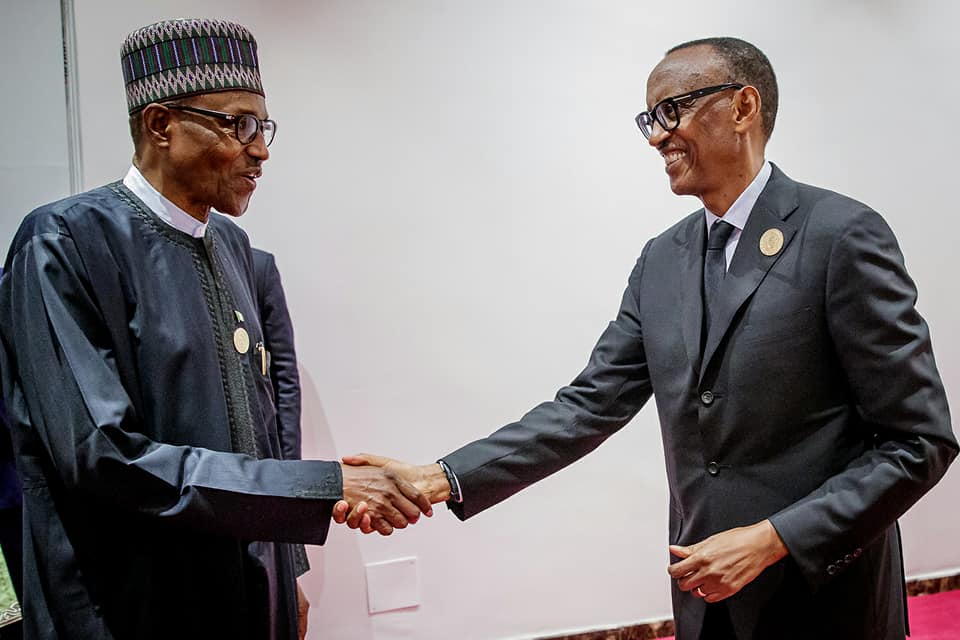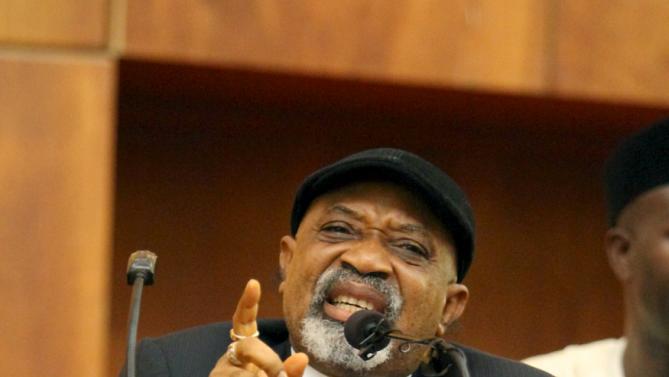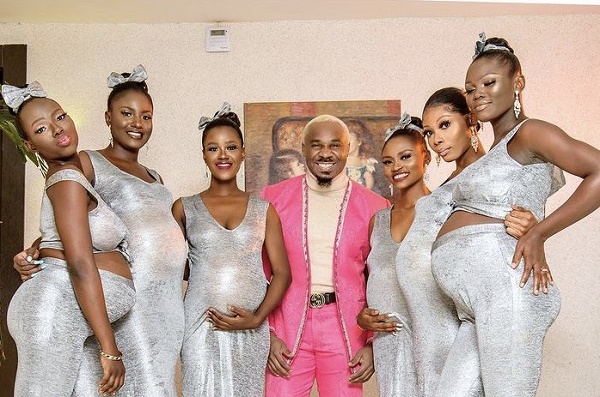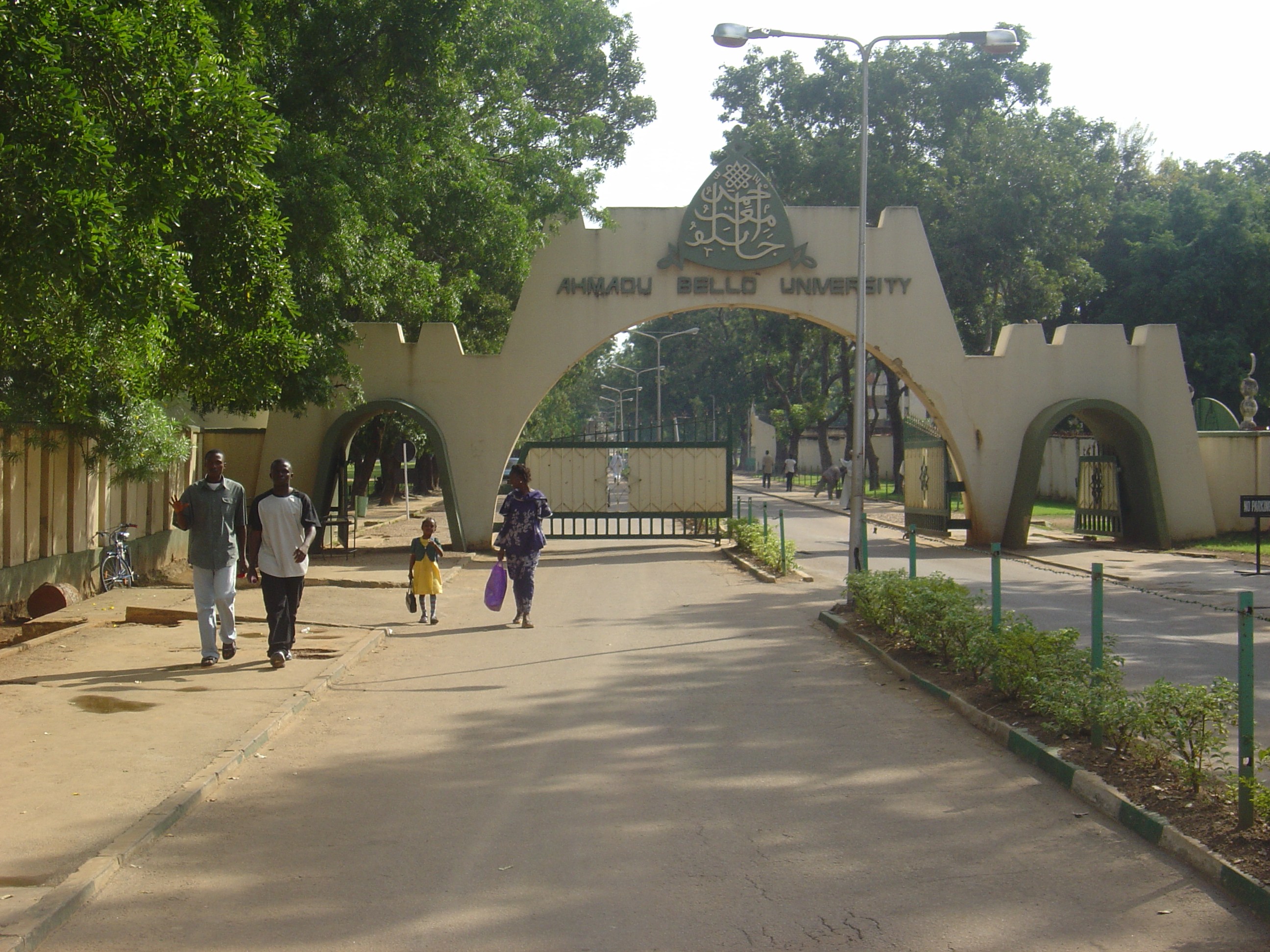Gradually, like a chameleon, President Muhammadu Buhari is morphing into the colour of Rwandan President, Paul Kagame. No, not the widely known colour of the developmental strides associated with Kagame. The brutal dictatorship veneer that lies behind the façade of Kagame’s democratic garment, I mean. Since 2000 when he took over power as President, Kagame, a Tutsi from Southern Rwanda, has held a Janus face to a world peeping into the dangerously hilly but beautiful country of Rwanda. Kagame started as commander of the Rwanda Patriotic Front, an Uganda-based rebel force that was the core of the blood spillage in the infamous Rwandan genocide that held from April 7 and July 15, 1994 where Hutu extremists killed in cold blood about one million people within a hundred days. Even when he served as Vice President and Minister of Defence between 1994 and 2000, Kagame was known to be the de facto president of Rwanda and a strongman, dreaded for his brutal and uncompromising attitude to the opposition. He is held high in the assassination of exiled Rwandan political opponents.
Kagame has since held forte for 20 years as President of Rwanda. As he does, a world which, like a famished hyena, hungrily proclaims “democracy,” has been looking the other way as the baboon is daily bathed with blood in Kigali. In 2017 when he sought re-election, Kagame went down in the Guinness Book of Record as the first president in the world who would be elected by his people with 99% votes. Not only is he known to be, development-wise, running one of the most impressive governments in Africa, human rights-wise, he is also one of the most repressive African rulers. He rules Rwanda with an iron fist like the Iron Curtains and is infamously known as sitting on a river of blood. Rwanda is perceived to be one huge field where killings, human rights violations and silencing of dissenting voices are perpetrated by the government as effortlessly as you spread mayonnaise on your bread.
In terms of development, Kagame ranks high on the continent and even beyond. He has prioritized the development of Rwanda and lifted it up as a middle-income country of note. Rwanda is high on key indicators of growth and her fare in the areas of annual growth, education, health and economy is impressive. This writer has visited and driven through the roads of Rwanda, even outside Kigali, and can testify that Kagame would make any African visitor proud of Rwanda’s heritage.
Indeed, the Rwandan economy has tremendously appreciated under Kagame, with a per-capita gross domestic product of $1,592. This was a leap from $567 as of 2000 when he took over. The country’s annual growth averaged 8% between the periods of 2004 to 2010, with a refreshing economic policy that centers on liberalization, privatization of state-owned companies and transformation of Rwanda from an agricultural to a knowledge-based economy. Only recently, Kagame entered into partnership with some cell phone manufacturers for the production of same in Rwanda. His target is to pattern the Rwandan economy after Singapore. For doing these, he has been praised by global leaders like Bill Clinton and Starbucks chairman, Howard Schultz for the transformation of Rwanda. He is however held with awe and disdain by the neighbouring Democratic Republic of Congo (DRC), alleged to be profiting his Rwanda from illegal pilfering of DRC’s mineral resources, the latter being a shouting distance from Rwanda and separated by River Ruzizi, a river of about 117 kilometres and which flows from Lake Kivu in DRC to Lake Tanganyika, also in Central Africa.
Advertisement
However, as said earlier, Rwanda holds a prominent life membership of countries with human rights ignominy, with earned medallion festooned with blood. As Kagame paddles his lanky frame across the globe with thumbs-up for developing war-torn Rwanda, the medallion of blood swivels menacingly on his neck, telling the whole wide world that Kagame’s developmental strides were achieved at the cost of rivers of blood of Rwandese.
Peradventure, Nigeria chooses to travel this Kagame blood-caked route, it will soon be proclaimed as one with zero respect for human rights. Between 2016 and 2017 alone, the following persons, places of their execution and dates, were hanged on Kagame’s neck, via the Rwandan Police: Juma Ntakingora (executed on September 21, 2016); Alexandre Bemeriki (executed in October 2016); Benjamin Niyonzima (executed on December 16, 2016); Basabose Hakuzimana (executed on December 6, 2016); Elias Habyarimana (executed on March 25, 2017); Samuel Minani (executed on December 15, 2016); Jean de Dieu Habiyaremye (arrested in late November 2016 and executed two days later); Ernest Tuyishime (executed on August 5, 2016); Thaddée Uwintwali (executed on December 13, 2016); Emmanuel Ntamuhanga (executed in March 2017); Fulgence Rukundo (executed on December 6, 2016) and Naftal Nteziriza (executed in late December 2016).
Others are Amulani Bazangirabate (executed in late December 2016); Jean Kanyesoko (executed on August 2, 2016); Claude Barayavuga (executed on April 27, 2017); Emmanuel Hanyurwabake (executed in late December 2016); Vedaste Renzaho (executed in late December 2016); Jeannine Mukeshimana (executed on December 16, 2016). These figures were supplied by the globally respected Human Rights Watch (HRW). The Kagame government, through its Rwanda National Commission for Human Rights, (NCHR) however frenetically struggled to discredit the HRW figures.
Advertisement
HRW detailed extrajudicial executions of, according to it, “at least 37 suspected petty offenders and the enforced disappearances of four others” which it said happened between April 2016 and April 2017. However, for each of the names of victims above, Rwanda supplied a pseudo person alive, thereby disclaiming the tag of murder placed on the government’s head. The government claimed that of the 37 persons HRW alleged were killed by the state, seven individuals on the list were alive at the time of its response to the global human rights organization. Four of the individuals, Rwanda said, had died of natural causes; six, the country said, died as a result of “various accidents;” one, according to the government, got shot by Congolese soldiers, eight of the number died as a result of gunshot wounds inflicted on them by Rwandan security forces during their illegal act of crossing the highly-dreaded Rwandan border shared with the DRC and the two remaining persons, the government said, also got shot in the process of resisting arrest. On the footage of the denial, Rwanda claimed that she didn’t know the whereabouts of ten of the victims on the list or whether they were dead or alive.
In contrast, one by one, the global human rights body acquitted itself and stuck to its claim that the Rwanda government bathes in a river of blood. For instance, HRW said in a November 2017 report: “For the case of Elias Habyarimana, killed by security forces in March, the NCHR presented a woman named Pelagie Nikuze who said Habyarimana is (was) her husband and that he is (was) living in Belgium. Human Rights Watch found that the man who is (was) said to be in Belgium is (was) a different person. The man killed in March was a fisherman who never had a passport.”
It is becoming apparent that Nigeria’s Federal Government finds the Rwandan model excitingly clone-able. Not the developmental growth, obviously, but the iron hands of Kagame. President Buhari would however need very strong, logical and convincing arguments not to be believed as piloting Nigeria towards the highly-burnished state-sanctioned, inglorious extra-judicial killings infamy of Kagame. This becomes more necessary in the aftermath of the blood-curdling report by the highly-rated Cable Network News (CNN) last week which detailed the minutest accounts of what actually transpired at the Lekki Toll Gate on the night of October 20, 2020. Buhari and his hirelings’ defence must go beyond the sickening, incoherent and bafflingly waffling narratives that they have begun to spread across the length and breadth of social media.
For instance, the Chief of Army Staff, Lt. General Tukur Buratai’s reply last Wednesday was an off-target shot. As he received members of the House of Representatives Committee on Army in Abuja, Buratai only left several people sprawled on the floor, laughing. He had insisted that the Nigerian Army, on that red day, had acted professionally by keeping to the rules known all over the world in such civil engagements.
Advertisement
“Let me assure you and all Nigerians that the Nigerian Army is professional. We follow our rules of engagement. Nigerians should feel safe. We abide by rules of engagement and the constitution of the Federal Republic of Nigeria,” the Army chief said. However, Nigerians know that Buratai’s denials on the Lekki killings had oscillated from, I paraphrase – the Army didn’t have knowledge of deployment of soldiers in Lekki; to, the army is not involved and now, army did not shoot live bullets at the protesters. The complicity of the Nigerian Army in the killings however hovers in the sky like a stubborn pestilence.
Enters Minister of Information, Lai Mohammed. He chose to reduce the whole allegation into a comedy with his cants and empty threats. “Like everyone else, I watched the CNN report. I must tell you that it reinforces the disinformation that is going around, and it is blatantly irresponsible and a poor piece of journalistic work by a reputable international news organization,” he had said, even as he threatened to sanction the globally respected news medium. It is apparent that Mohammed may have challenges appreciating good journalism. His disclaimer of the CNN report lacks substance or contrary evidence other than the government’s weather-beaten but puerile claim that there were no bodies of victims. To this, the CNN report alleged that soldiers were carting away their Lekki “spoils” to conceal evidence. A responsible government should have provided contrary evidence, rather than disgracing itself with baseless bravado.
Those who know have lauded the CNN report as good journalism, in all material particular, for delving beyond the superficial. Mohammed should leave his chair and see where the pendulum of irresponsibility actually hangs. This is a minister who cites the China example for Nigeria to copy in control of social media usage. He failed to equally call for the cloning of China’s punitive execution of corrupt government officials. Nigerians have since told him that, since what is sauce for the goose is sauce for the gander, the two China examples should be cloned simultaneously by Nigeria for equity and fairness. More fundamentally is the question, does Mohammed know that only despotic governments have this level of paranoia for free speech and an open society?
As Buhari makes up his mind to go Rwanda, the CNN did his government in, in the aforementioned report. The report provided almost irrefutable evidence to convince its global audience that the Nigerian Army indeed shot at unarmed protesters with live bullets as they protested in Lekki, Lagos. CNN, working with a Balkan Investigative Reporting Network, even went ahead to provide ballistic evidence to corroborate its claim that live bullets were used, and further “established that several of the bullets from the Lekki toll gate originated from Serbia.” CNN also claimed to have documents which pointed that Nigeria purchased weapons from Serbia almost every year between 2005 and 2016.”
Advertisement
Victor Sunday Ibanga, one of those protesting against police brutality on this day, was alleged in the report to have been killed and his body taken away. In the same vein, allegations of soldiers taking away bodies of murdered protesters to unknown destinations envelope this brutal nocturne operation. Several families also claim to be searching for their family members who participated in the peaceful protest. Sadly, as a synonym of the soldiers’ disrespect and disdain for the Nigerian flag, the protesters were alleged to have been murdered while singing the Nigerian national anthem and waving the flag. Highly respected Amnesty International also detailed how the bloodthirsty soldiers were drafted from Bonny Camp military base. To stave off the usual infantile denials of Nigerian authorities, the CNN corroborated its claim of brutal killings of the youths with a geo-location of photographs of the dead. Thank God the CNN told Buhari, Mohammed and all members of their fawning orchestra who attempted, without a single cogent justification, to debunk the veracity of the CNN report, to go jump inside the River Ruzizi. It stood by its story, it said.
After that night of killings, Buhari has since gone fully Kagame and on a journey of no return into acute repressive mode. While evincing sobriety and regret on television for the attention of the world, Buhari descended heavily on free speech and rights of anyone his security goons identified as having any link to the protest. Not only did the CBN freeze accounts of the protesters as Kagame does in Rwanda, the government also perfected plans to impose travel bans on suspected participants. Buhari himself has vowed that he would stop any similar protest by the youths by every means possible. Like a police state of Kagame’s model, policemen also swooped on Fela Anikulapo Kuti’s African Shrine last week to stop a proposed meeting of youths.
Advertisement
For Nigerians under Buhari, it is what lawyers call double jeopardy. Unlike Kagame’s Rwanda where peace of the graveyard rules, perhaps due to state brutality being sauced with development and good life for the people, Nigeria’s Buhari is marked by a bedlam of the marketplace where people suffer from the twin of bad government and budding iron fist rule. Students in public universities have been at home now for close to a year but the Aso Rock lord is too marooned in his own understanding to bother about it. Boko Haram insurgents reign unchecked with magisterial impunity while bandits have a field day, killing and maiming Nigerians but Buhari doesn’t know or cares less as the blood spillage increases. The Nigerian economy is in dire straits while the country is slipping towards crashing point. Amidst these scary projections and government’s cluelessness and helplessness, a swarm of fawners and palace jesters egg Buhari on, claiming that he is God’s deputy sent on earth.
I align myself absolutely with DJ Switch’s claim in that CNN report that Buhari is a dictator who hides his claws from the world by donning the visor of a democrat. The only comfort that Nigerians have is an assurance of history that the Kagame route had always ended up a total catastrophe for any Nigerian leader who chooses to go Rwanda.
Advertisement
David Umahi: And Jesus wept uncontrollably
The most talked-about political event in Nigeria today is the defection last week of Ebonyi State governor, David Umahi from the Peoples Democratic Party (PDP) to the ruling All Progressives Congress (APC). In a Nigeria where morality, both on the social and political planes, have gone down the abyss, that is just as well. Political science scholars have been scrambling to explain this weird and atypical Nigerian political prostitution culture where a politician wakes up in the morning as belonging to a political party, by midday, is divorced from that party and by nightfall, is in bed with yet another. Perhaps it speaks volume of who we are as a people, with a thin skin tissue of reliability and trust, waxing luscious in deceit, double-face and gross irresponsibility. Umahi just mirrors us in our totality and as such, the need to clap him into the next dalliance.
Advertisement
Rather than enter his red light district without a whimper, roll into bed without ceremony, switch off the light and engage in what his colleagues do, Umahi is seeking to canonize his prostitution. And that is the bother. In bed with his most recent client, Umahi slipped into Aso Rock almost immediately and got his adulterous partner to beatify him for his prostitution.
It is “a bold move driven purely by principle rather than opportunistic motives,” President Muhammadu Buhari was reported to have described this glaring prostitution. “I am proud of Governor David Umahi for taking this bold decision in accordance with his conscience and principles rather than any external influence or coercion,” he continued. To ram home the nail of ignominy on the portmanteau of shame, the president said: “With men like Umahi, I foresee a brighter future for our democracy because the voters will be more motivated by performance records of parties and their candidates.” And Jesus wept. Uncontrollably.
Umahi himself has since been struggling to justify why he had to change a dalliance partner. He immediately eloped into a tribal profiling which conmen in positions of power had always done. His changing political party, Umahi told reporters in Abakaliki, capital of Ebonyi State, held him up as a martyr for the attainment of Igbo presidency, a guinea pig, if you like. Because martyrdom is about sacrificing oneself for the people’s tomorrow, he is a martyr, he said further. Smart Alec, this one is, misappropriating selfish interest as group interest, to hoodwink his unsuspecting people.
The truth is, Umahi had merely moved from a maggots’ cesspool into a real sewage. This is because there is no marked difference between the PDP where he was coming from and the APC where he landed. Their difference can be contextualized in the mould of someone trying to justify and submit that there was a preferable immorality between the ancient red light district prostitution and today’s youth prostitution famously labeled runs.
Give it to Umahi, he has cogent reason to want to become Nigerian president. Especially after Buhari has sat on the same seat for five years now, with a descending country in his grips. You need strong courage to confront such freeze without wondering if you were not qualified to aim at the same seat.
Let it be told that Umahi would soon realize and too late too, that he just left the frying pan for a walk on the fire gauze. Except for the satisfaction of his vanity, his decamping will end up a total disaster. Not because he would not cavort in the midst of power vultures of the North and have photo-ops with them but because he would soon realize that they have deep-seated disdain for him and his people. By then, he would find himself at the same intersection where MKO Abiola found himself in the early 1980s, after variously tying pampers and diapers for the Northern power hegemons.
When a man who, on his first trip outside the country, showed unquantifiable disdain for your people and manifested it in five years of his governance, yet you assume you can babysit him to cede power to you and your people, you can only be wished good luck in your fantasy of illusion. At his first official state visit to the United States on July 22, 2015, in an address at the United States Institute of Peace (USIP), Buhari had told Dr. Pauline Baker, the President Emeritus of The Fund for Peace, who asked him how inclusive his government would be, and matter-of-factly too that, “I hope you have a copy of the election results. The constituents, for example, (who) gave me 97% (of the votes) cannot in all honesty be treated on same issues with constituencies that gave me 5%.”
It was all these that made Jesus Christ of Nazareth to weep once again. For Umahi.







